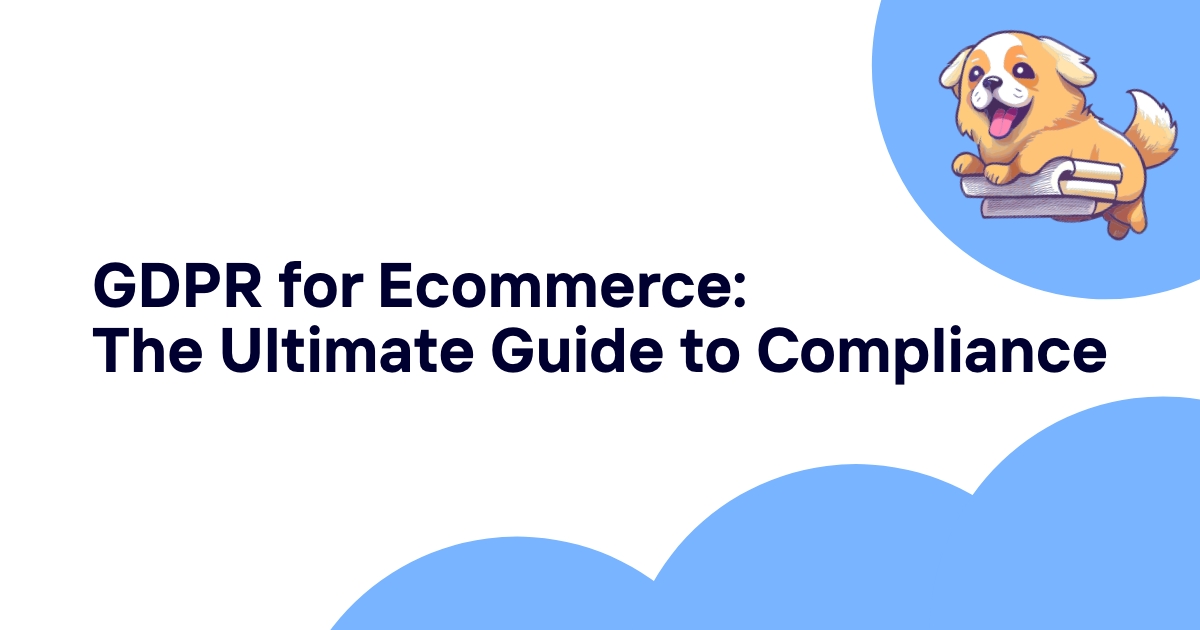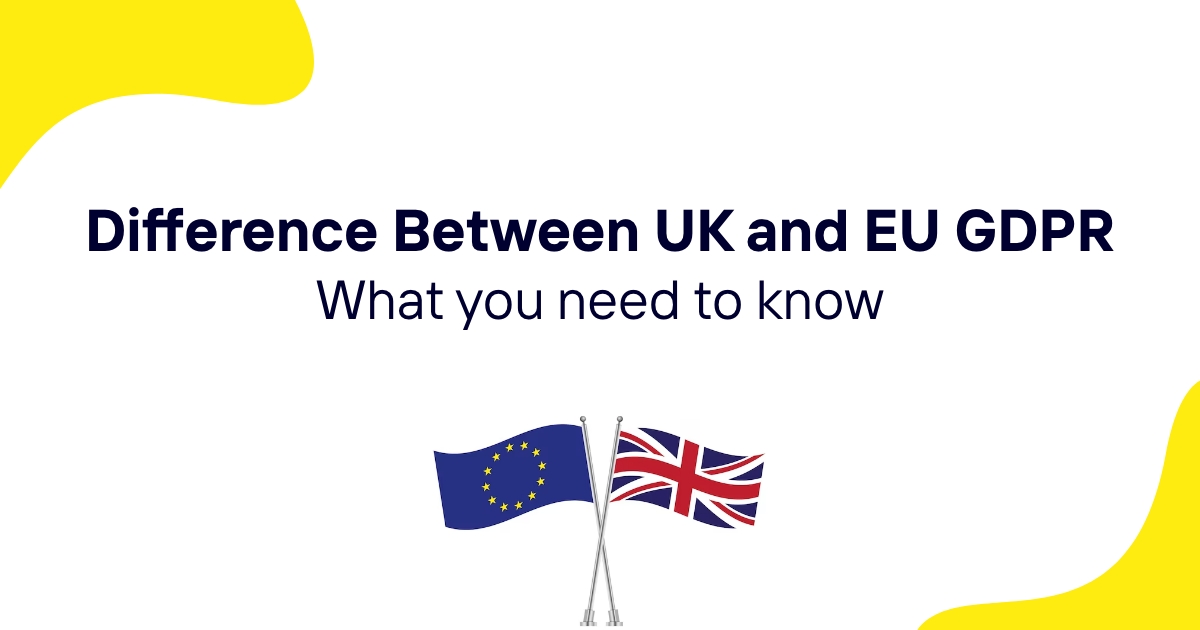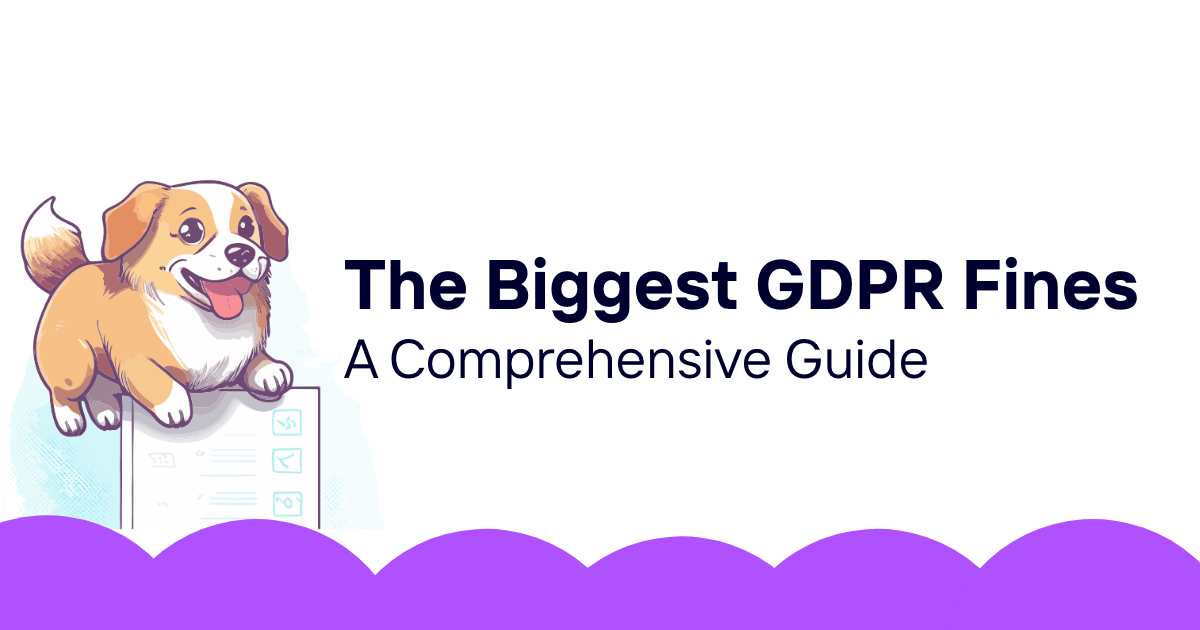Introduction
The General Data Protection Regulation (GDPR) has dramatically reshaped how businesses handle personal data, with particularly significant implications for ecommerce companies. As online retail continues to boom, understanding and implementing GDPR compliance is not just a legal necessity but a competitive advantage. This comprehensive guide will walk you through everything ecommerce businesses need to know about GDPR compliance, from its core principles to practical implementation strategies.
Table of Contents
- Understanding GDPR Basics
- GDPR's Impact on Ecommerce
- Key GDPR Principles for Ecommerce
- Obtaining Valid Consent
- Data Protection and Management
- Ecommerce-Specific GDPR Considerations
- Steps to Achieve GDPR Compliance
- GDPR Compliance as a Competitive Advantage
- Penalties for Non-Compliance
- Future-Proofing Your Ecommerce Business
Understanding GDPR Basics
The General Data Protection Regulation (GDPR) is a comprehensive data protection law that came into effect on May 25, 2018. It aims to give EU residents more control over their personal data and to unify data protection regulations within the EU.
Key aspects of GDPR include:
- Applies to any company processing the personal data of EU residents, regardless of the company's location
- Requires explicit consent for data collection and processing
- Grants individuals rights over their data, including the right to access, correct, and delete their information
- Mandates data protection by design and default
- Introduces significant penalties for non-compliance
For ecommerce businesses, GDPR compliance is crucial, as these companies regularly collect and process large amounts of personal data from customers across the EU.
GDPR's Impact on Ecommerce
The ecommerce sector has been significantly affected by GDPR due to its reliance on personal data for various operations. Here's how GDPR impacts ecommerce businesses:
-
Customer Data Collection: Ecommerce sites must now be more transparent about what data they collect and why.
-
Marketing Practices: Personalized marketing and email campaigns require explicit consent from customers.
-
Data Storage and Security: Stricter requirements for how customer data is stored and protected.
-
Third-party Integrations: Ecommerce businesses must ensure that all third-party tools and services they use are also GDPR compliant.
-
International Operations: Companies selling to EU customers must comply with GDPR, regardless of their physical location.
Key GDPR Principles for Ecommerce
To ensure compliance, ecommerce businesses should understand and implement these core GDPR principles:
-
Lawfulness, Fairness, and Transparency: Collect and process data legally, fairly, and in a transparent manner.
-
Purpose Limitation: Collect data for specified, explicit, and legitimate purposes only.
-
Data Minimization: Limit data collection to what is necessary for the stated purpose.
-
Accuracy: Ensure that personal data is accurate and kept up to date.
-
Storage Limitation: Keep personal data only for as long as necessary.
-
Integrity and Confidentiality: Process data securely, protecting against unauthorized or unlawful processing and accidental loss.
-
Accountability: Be able to demonstrate compliance with GDPR principles.
Obtaining Valid Consent
One of the cornerstones of GDPR compliance for ecommerce is obtaining valid consent from users. Here's what constitutes valid consent:
- Freely Given: Users should have a genuine choice and control over their data.
- Specific: Consent should be separate for different data processing activities.
- Informed: Users must be clearly informed about what they're consenting to.
- Unambiguous: Consent must be given through a clear affirmative action.
- Withdrawable: Users should be able to withdraw consent easily at any time.
Practical tips for obtaining valid consent:
- Use clear, plain language in your consent requests
- Avoid pre-ticked boxes or default consent options
- Separate consent for different purposes (e.g., marketing emails vs. order processing)
- Provide easy ways for users to withdraw consent
- Keep records of obtained consent
Data Protection and Management
GDPR requires ecommerce businesses to implement robust data protection measures. Key aspects include:
Data Protection by Design and Default
Implement technical and organizational measures to integrate data protection into your processing activities. This could include:
- Data encryption
- Regular security audits
- Access controls
- Data minimization techniques
Data Breach Notification
Have a process in place to detect, report, and investigate personal data breaches. Under GDPR, certain breaches must be reported to the relevant supervisory authority within 72 hours.
Data Protection Impact Assessments (DPIAs)
Conduct DPIAs for high-risk processing activities, such as large-scale processing of sensitive data or systematic monitoring of public areas.
Appointing a Data Protection Officer (DPO)
While not all ecommerce businesses will need a DPO, it's worth considering if your core activities involve large-scale, regular, and systematic monitoring of individuals.
Ecommerce-Specific GDPR Considerations
Ecommerce businesses face unique challenges when it comes to GDPR compliance. Here are some specific areas to focus on:
Customer Accounts and Profiles
- Allow customers to easily access, edit, and delete their account information
- Implement data retention policies and automatic deletion of inactive accounts
Payment Processing
- Ensure your payment gateway is GDPR compliant
- Only collect and store necessary payment information
- Implement strong encryption for financial data
Order Fulfillment and Shipping
- Limit access to customer shipping information
- Ensure third-party logistics providers are GDPR compliant
- Delete or anonymize shipping data after a reasonable period
Marketing and Personalization
- Obtain explicit consent for marketing communications
- Provide clear opt-out options in all marketing materials
- Be transparent about how you use data for personalization
Website Analytics and Tracking
- Use cookie consent banners that comply with GDPR requirements
- Anonymize IP addresses in your analytics tool
- Limit data retention periods for analytics data
Customer Service and Support
- Train customer service staff on data protection principles
- Implement secure channels for handling customer data requests
- Establish procedures for verifying customer identities before disclosing personal information
Steps to Achieve GDPR Compliance
Follow these steps to work towards GDPR compliance for your ecommerce business:
-
Conduct a Data Audit: Identify what personal data you collect, where it's stored, how it's used, and who has access to it.
-
Review and Update Privacy Policies: Ensure your privacy policy clearly explains your data practices in simple language.
-
Implement Consent Mechanisms: Add GDPR-compliant consent options to all data collection points.
-
Enhance Data Security: Implement strong security measures to protect personal data.
-
Establish Data Subject Rights Procedures: Create processes for handling data access, correction, and deletion requests.
-
Train Your Team: Educate all employees about GDPR requirements and your company's data protection policies.
-
Review Third-Party Relationships: Ensure all vendors and partners are GDPR compliant.
-
Document Everything: Keep detailed records of your data processing activities and compliance efforts.
-
Implement Data Protection Impact Assessments: Conduct DPIAs for high-risk processing activities.
-
Appoint a Data Protection Officer: If required, or consider a designated person responsible for data protection.
GDPR Compliance as a Competitive Advantage
While GDPR compliance may seem daunting, it can actually be a powerful competitive advantage for ecommerce businesses:
-
Build Trust: Demonstrating strong data protection practices can increase customer confidence and loyalty.
-
Improve Data Quality: GDPR encourages better data management, leading to more accurate and valuable customer insights.
-
Enhance Brand Reputation: Being known for respecting customer privacy can differentiate your brand in a crowded market.
-
Streamline Operations: Compliance often leads to more efficient data processes and reduced data storage costs.
-
Prepare for Global Expansion: GDPR compliance can help you meet data protection requirements in other jurisdictions.
Penalties for Non-Compliance
The consequences of non-compliance with GDPR can be severe. Penalties fall into two tiers:
-
Lower Tier: Up to €10 million or 2% of the company's global annual turnover of the previous financial year, whichever is higher.
-
Upper Tier: Up to €20 million or 4% of the company's global annual turnover of the previous financial year, whichever is higher.
Factors that influence penalties include:
- Nature and gravity of the infringement
- Intentional or negligent character of the infringement
- Actions taken to mitigate damage to data subjects
- Degree of cooperation with the supervisory authority
- Previous infringements
It's important to note that penalties are not just financial. Reputation damage and loss of customer trust can have long-lasting impacts on an ecommerce business.
Future-Proofing Your Ecommerce Business
As data protection laws continue to evolve globally, maintaining GDPR compliance is just the beginning. Here are strategies to future-proof your ecommerce business:
-
Stay Informed: Keep up with changes in data protection laws and industry best practices.
-
Implement Privacy by Design: Make data protection a core consideration in all new projects and updates.
-
Foster a Privacy-First Culture: Encourage all team members to prioritize data protection in their daily work.
-
Regularly Review and Update: Conduct periodic audits of your data practices and update your policies accordingly.
-
Invest in Technology: Consider using compliance management tools to streamline your GDPR efforts.
-
Plan for Global Compliance: As your business grows, be prepared to comply with data protection laws in new markets.
By embracing GDPR compliance, ecommerce businesses can build stronger relationships with their customers, operate more efficiently, and position themselves for long-term success in an increasingly privacy-conscious world.
Remember, GDPR compliance is an ongoing process, not a one-time effort. By making data protection a core part of your business strategy, you'll be well-positioned to thrive in the digital economy while respecting and protecting your customers' privacy.

















